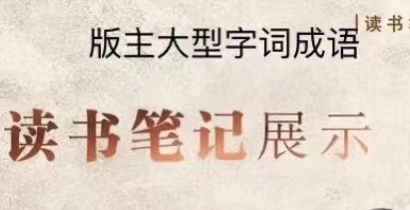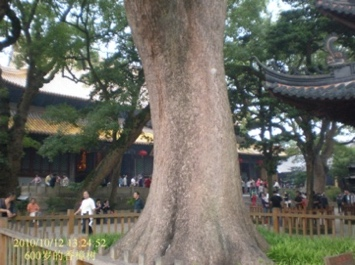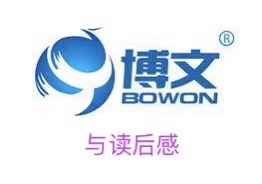When Entering Pengda, I discovered the teaching course contents quite different. During the days when I worked in the middle school, all my teaching was helping students to lay the basis for their English and to cope with the college enrollment examination. We all had good eyes for detail and noticed almost every tiny mistake in written English, learning completely correct and Standard English without even considering practical use. Some of us, including me, often took unnecessary pains to study insignificant problemsaccording the logical reasoning. At that time, the whole college did not have a uniform teaching material and there were three kinds of text books, all of which had some professional knowledge. The students majoring in secretary used liberal arts English edited by Fudan University, in which there were some western literary works; those majoring in accounting profession studied the Financial English published by Shanghai Foreign Language Teaching Publishing House and the engineering students were taught the Engineering English composed by the Foreign Language Teaching and Research Section of Shanghai Jiaotong University. I liked these teaching texts very much because by teaching them I could learn a lot of professional knowledge and enlarge my vocabularies, which was called “teaching and learning promote each other”. In a Chinese ancient book on laws and regulations, “Li Ji”, there was a fascicule, called “Xue Ji” and in it there was a sentence: “Only when you learn can you know what you do not know; only when you teach can you know what you do not understand. When you know what you do not know, you will learn and when you know what you do not understand you will strengthen yourself, therefore teaching and learning promote each other.” When I began to teach English in Pengda I undertook the task of teaching the engineering English and financial English.
The full name of Pengda was called “Pengcheng Vocational University”, which was founded in 1983 and 10 of the 11 municipalities subordinated to Jiangsu Provincial Government built vocational universities (with Huaiyin City excepted), whose aim was to cultivate practical personnel to meet the need of the local economic development. At first, students came within the city and later from the six counties administrated by the city. The university was developing continuously, which I would deal with later. This was a junior college and because it was newly built, so it enrolled the students after the older universities and colleges. As a result, the quality of the students was somewhat inferior even more inferior to some technical school enrolled students from all over the country. When I began to work here in autumn of 1990, Pengda was a college claiming to have 800 students. There were four departments, one teaching and research group directly led by the college and one laboratory centre, namely the Management Department, the Architecture Department, the Electromechanical and Food Department and the Department of Fine Arts; the Teaching and Research section of Marxism and Leninism and the Laboratory Centre. There was no Foreign Language Department and the English teaching and research group was subordinated to the Management Department. Altogether only 7 teachers held the task of teaching English of the whole college. The Management Dept. had two specialties, i.e. secretary and financial accountant. Every class of the whole college had three English periods each week for two years, with the even and odd weeks differently. If the odd week had two periods, the even week had four periods and vice verse. I could not enjoy myself to the full because I could only teach three books before the time was up and the authentic articles in Book Four could not be taught and the teaching and learning had no chance to promote each other.
The engineering English edited by Shanghai Jiaoda was of popular science nature, and not very much specialized. Depending on the basic knowledge of the maths, physics and chemistry I grasped during my senior middle school I can understand and translate the texts without difficulty. The contents touched upon radar, materials, computer, petroleum, robotics, machine design, nuclear reactors and etc. By teaching those texts I could get familiar with a lot of scientific vocabularies and ready for my future development. Some sentences in English for science and technology were quite long and in them there were separation phenomena, namely the members close to each other in the basic sentence pattern were separated. When students read those sentences they seemed to fall into heavy fog, not able to find the basic sentence structure. I used long sentences from the text as examples to summarize all kinds of separation phenomena and composed a thesis, setting forth the separations between the subject and the predicate, the transitive verb and the object, the object and its complement, the noun and its post modifier. The thesis was published on Pengda Journal. I was wondering how many readers could read it, but the summarization did help me a lot in explaining long complex sentences in class.
Financial English involved the basis of the specialty and was not very specialized either. Almost all the texts dealt with popularized financial knowledge, including, for example, installment plan, inflation, credit card economy, imports and exports, advertising, insurance, the American tax system, the International Monetary Fund, international transfer of money and etc. The financial vocabularies were more general than scientific ones and you could come upon them while reading economic newspapers every day, thus speeding up the pace at which you got familiar with them. At that time what in my mind was to expand my vocabularies as speedy as possible, to speed up my reading rate of some specialized materials and realize the transition from a common English teacher to the one familiar with some practical English.
In my spare time I still coached the accountants from the Financial Bureau in accountant English. As time went on, the texts became more and more specialized, including overview of the accounting process, recording debits and credits, financial statement analysis, the implementing principles of accounting, cost accounting, break-even analysis, tax accounting, auditing, economics and etc. Because I had a history of reading a lot of difficult materials, it was not very hard for me to understand original accounting English even it became specialized. The accountants coached by me could help me with the knowledge of accounting and I succeeded in teaching them, getting ready for my later development.
March 28, 2010 in Xuzhou
Proofreading on Feb. 23 2012 in Chicago
Uploading on Aug. 6 2023 in Xuzhou









